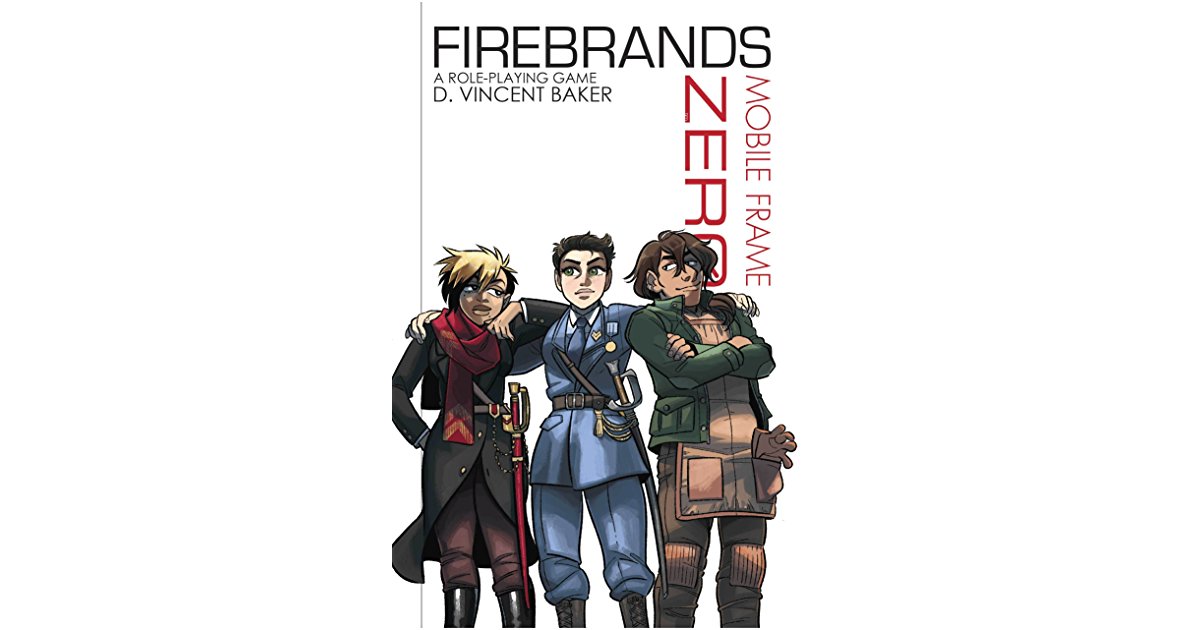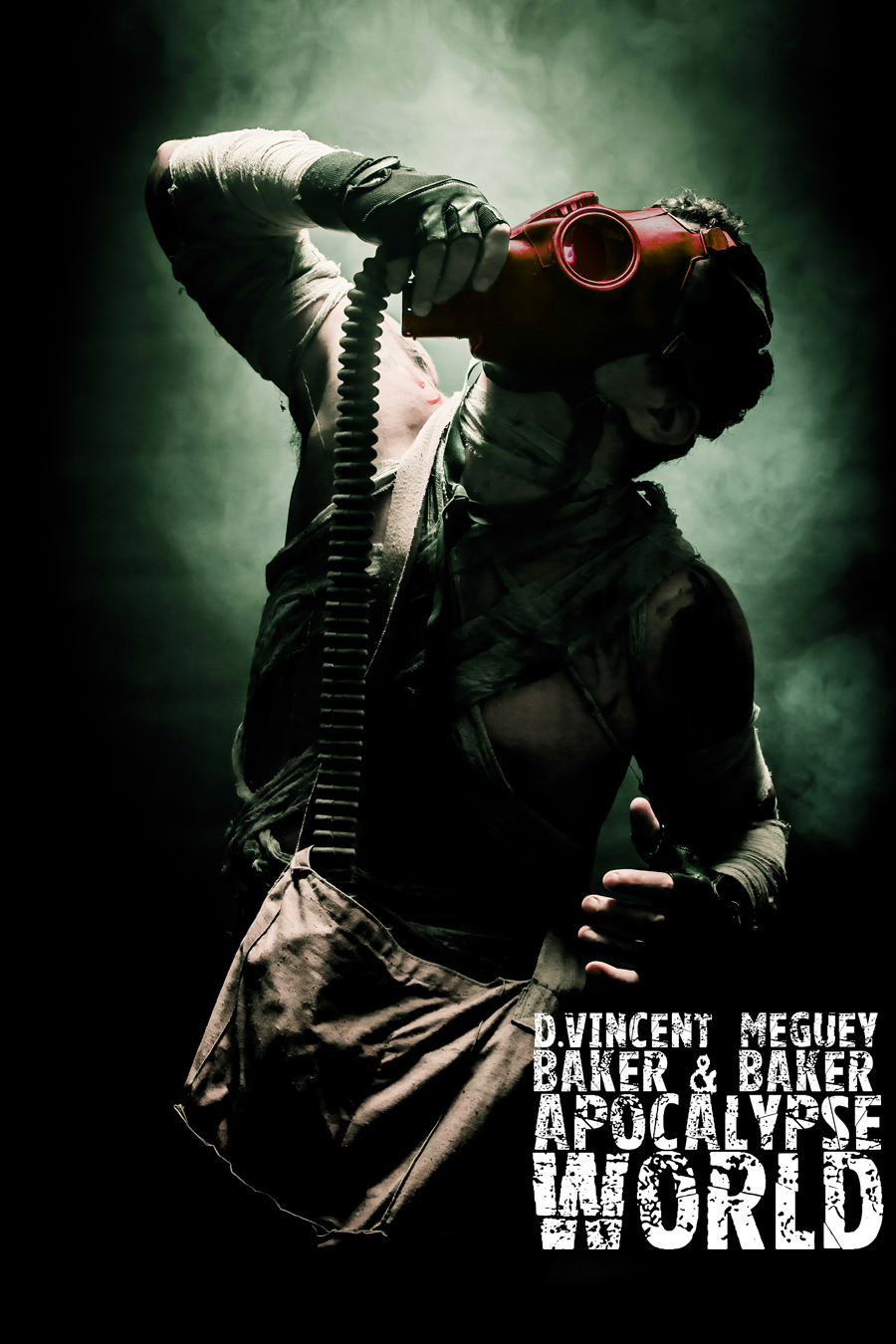David Vincent Baker is a designer of tabletop role playing games and the owner of Lumpley Games. His games include Dogs in the Vineyard , which won 2004 RPG Game of the year among other awards, and Apocalypse World, with co-designer Meguey Baker, which won Game of the Year, Best Support, and Most Innovative game at the 2010 Indie RPG Awards, and was 2011 RPG of the Year at both the Golden Geek Awards and Lucca Comics & Games. He maintains the journal and game archive, anyway.
On doing what you love full-time: An interview with tabletop game designer D. Vincent Baker. From a conversation with Brandon Stosuy.
How do you make a successful game? And once you do have a good idea, how you get it out there so people can hear about it and play it?
The first game I published was called Kill Puppies for Satan. This was in 2002. Google was brand new in those days, and for a while if you Googled “puppies,” Kill Puppies for Satan was on the front page. So I got a ton of hate mail, which was hilarious. I put that on my website, the hate mail I was getting.
So, that’s my advice. Publish a game called Kill Puppies for Satan and get it on the front page of Google. [laughs]
When you’ve been making games for as long as you have, how do you keep going? How do you keep coming up with ideas? Do you find yourself falling into any kind of tendencies you have to fight against? Is there any kind of comfort zone, or do you just keep coming up with new stuff?
I’m really restless. I always have a backlog of games that I’m working on, and I’m always adding to it. I finish a tenth of the games I work on. With some of them it’s because I abandon them, but for a lot of them it is just because this is the one I’m finishing for whatever reason, taken up as my muse.
So, this is the one I’m finishing, and the other ones just have to wait. Maybe they’ll get finished someday, and maybe they’ll have to wait. So, for me personally, there’s no way out of it. It’s not the, “How do I keep going?” It’s the, “Is there light at the end of the tunnel?” “How am I gonna retire?” “How am I gonna stop doing this when the time comes?”
Have you ever started working on a game thinking, “This is going to be great,” and then nobody wants to play it? Or when you start testing it out you realize it was better in theory than practice?
There was a game I published three or four years ago, where I said “I’m publishing this game, it’s free on the internet. Here you go, all of my friends and fans. I will be delighted if 20 people ever play this game. I’m proud of it. It’s a good game. It’s got interesting stuff in it. Nobody is gonna play it. Here’s my prediction. Nobody’s gonna play it.” And something like 22 people have played it. (laughs) I’m delighted. I’m blown away by the response to that game. It’s 10% more than I expected it to be.

Now that you know what people respond to, do you still have the interest to make the things that people may not respond to, just because you’re responding to it?
Where do your ideas come from for your games?
About half of my games come from me reading someone having an opinion about games, and I think they’re wrong. Like, this guy writes three sentences to me, and the whole game appears in my head, out of outrage, due to what this guy has said. That’s maybe half my games.
But, the rest of them… I read. For the the game I’m working on right this minute, a friend of mine was talking about their game on the internet; casually, in their announcement, was the name of the game company, which was Mammut games. Mammut games, and suddenly this idea for a game about mammoth hunters comes into my head.
I’ve been working on it for a week now. It was just because I read those words, “Mammut games.”

When you’re done with a game, do you keep editing it?
A lot of my games get a revision after they’ve been out for a year or two, but within narrow bounds. We’ve played the heck out of Apocalypse World for five years, and then I was like, “I think I can improve this game by five percent.” And so I did.
As my wife Meg and I—she is also my co-designer—were working on the second edition of Apocalypse World, there were a lot of places where we said, “Well, we could change these rules so they’re more of what we’re excited about now, five years later, but instead let’s save that for another game. Let’s keep Apocalypse World within its own boundaries.”
We improved it in a bunch of small ways, where maybe we could have taken it much further. But, ultimately we decided to say “What’s done is done. We’ll spiff it up a little, but we’re not gonna revisit it in any fundamental way.”
I can imagine it could become endless if you don’t set some kind of limit or framework.
As you mentioned, you create games with your wife, Meg. I imagine there are pluses and minuses to having a creative partnership with your spouse. If you’re in the same zone all the time, do you find yourself getting competitive about things you’re working on? Or do you work as a perfect symbiotic collaborator?
Do you have times of the day when it’s best for you to work?
When you’re juggling all that, do you ever reach the point, where you’re just like, “I’m tired I need to not work for a bit?”

How did you know when it was the right time to leave your job and to just do game design?
Oh, it was decided for me. I got laid off. But we were very glad that there was a business there to catch me.
Was that a scary moment?
It still is. I Kickstarted Apocalypse World. It made enough money that the layoff was not…terrible. Now, a year and a half later, so far, so good, you know?
How do you create deadlines for yourself? And if you don’t, how do you know when something is done?
For the kind of work that you do, what are the most valuable resources? Time and money? Is there anything else that you need to successfully create?
I need Meg. She reads every word I write, she tries every single idea that I have. We live down the street from Emily Care Boss, and Epidiah Ravachol, who are also accomplished game designers.
For people just starting out, how do they get people to not just see their work, but to pay attention to it?
The best advice is often: Work hard, and maybe things will fall together. A lot of it’s luck. It’s hard to give a formula. Like, “Here you go, this is gonna make you successful.”
I have a pretty big audience, I guess. But I don’t know any better than anybody else how to get more people to pay attention. I can’t make people look at my games, any better than anybody can make people look at their games. You know? You have to catch it.
If, suddenly, one day it dries up, do you think you’d still keep making them?
Oh, yeah. I have to. But I would have to get a job again.
-
Five things Meg Baker says say something about me:
- Borgel by Daniel Pinkwater
- "Friendship" by Tim Eriksen
- This brick red Le Pen pen I've been carrying around
- The Sioux Chef's Indigenous Kithcen by Sean Sherman with Beth Dooley
- Goblin Valley, Utah